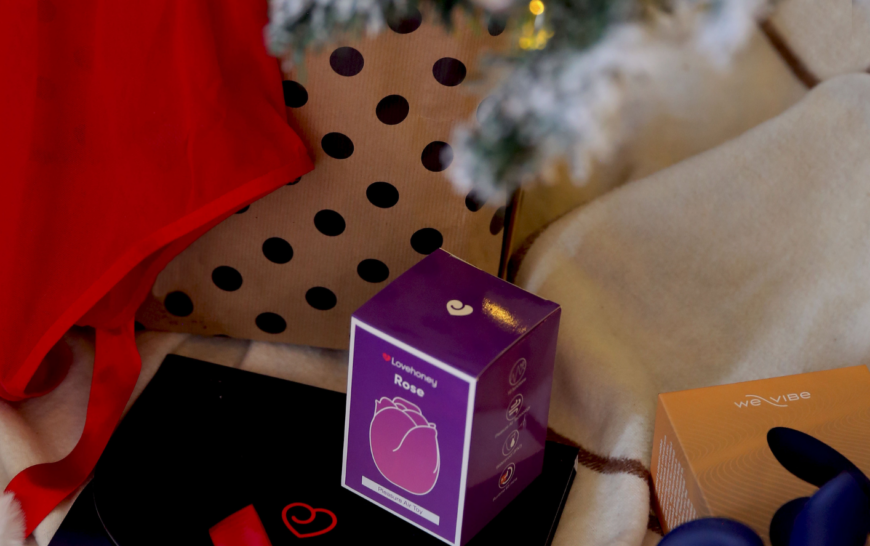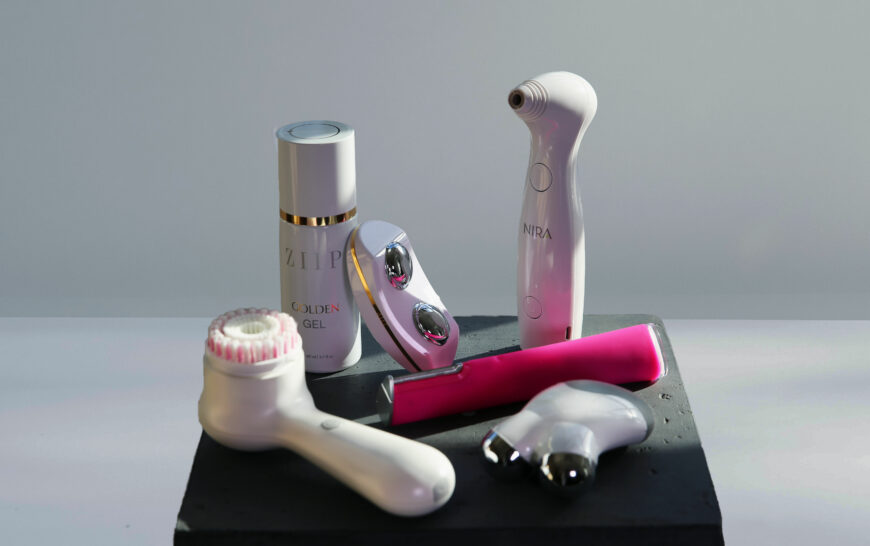
Herpes Happens: Why Having the STI Really Isn’t As Big of a Deal as You Might Think
The stats sound scary, sex education makes it seem like the worst thing that could ever happen to you, and the media and popular culture reduce it to the punchline of a joke. For a vast percentage of the population though, having a sexually transmitted infection is the reality.
In her viral 2016 TedTalk– now amassing nearly three-quarters of a million views- Ella Dawson, social media manager by day, sex writer by night and Herpes positive at both AM to PM, takes to the stage to state: “STIs aren’t a consequence, they’re inevitable”.
The media and popular culture reduce it to the punchline of a joke. For a vast percentage of the population though, having a sexually transmitted infection is the reality
Despite a drop in diagnosed STIs in 2020 as a result of social distancing and disruption to sexual health services during a time when essential outings didn’t include Tinder dates, previous data show that STIs in the U.K. are on the rise. Cases of sexually transmiited infections in England including chlamydia, herpes and gonorrhoea rose by 5% from 2018 to 2019 totalling 468,342 diagnoses. The stats sound scary, sex education makes it seem like the worst thing that could ever happen to you, and the media and popular culture reduce it to the punchline of a joke. For a vast percentage of the population though, having a sexually transmitted infection is the reality, and although it may feel like it, life doesn’t cease to exist the day you get a positive result.
Ella has gone on to amass nearly 10,000 followers on Instagram sharing content about her herpes diagnosis and continues to work towards a world in which herpes can shake the stigma- a change that can’t come soon enough for the estimated 491.5 million people living with HSV-2 worldwide. Despite its commonplace nature, those who aren’t living with herpes or aren’t aware of their herpes status (presenting as asymptomatic can be common) often don’t know the facts about the virus because of the scaremongering that so often circulates in the media. Despite being painful and inconvenient at times, a herpes diagnosis doesn’t make you less worthy of love, both from yourself and others and certainly doesn’t mean your life is over. So, let’s break it down:
There are two strains of the herpes simplex virus: HSV-1 and HSV-2. Type one is usually linked to blisters and cold sores on the face and mouth, whereas type two is associated with ano-genital blisters. Despite its bad rep, HSV is an incredibly common infection with as many as 7 in 10 people (70%) of the UK population having HSV-1 and approximately 1 in 10 people (10%) having HSV-2. Already feeling less alone if you’re herpes positive? We hope so!
What is HSV-1?
You can transmit or contract HSV-1 (oral herpes) through direct contact with a herpes sore, saliva, or other bodily secretions during an active episode or viral shedding (keep reading for more on this). In short, if you touch a partner’s cold sore and then touch your own face or genitals soon after, you could contract HSV-1. It’s possible that the virus can be transmitted through things like sharing a lip balm or using the same glass to drink from, but contracting herpes like this is very rare as the virus cannot survive for long when away from the skin.
HSV-1 for many can be contracted in childhood courtesy of overenthusiastic Aunties who can’t resist a smooch when they have a cold sore, but as part of the miseducation surrounding the virus, most don’t associate cold sores with being part of the herpes family. Spoiler alert: if you have cold sores, you have herpes! And despite the fact that HSV-1 prefers to live in mouths and HSV-2 prefers to live in genitals, they’re capable of swapping neighbourhoods if they fancy, meaning it is possible for those with HSV-1 to accidentally spread genital herpes too.
What is HSV-2?
HSV-2 aka genital herpes is typically passed on through vaginal, anal and oral sex and includes symptoms such as blisters around your genitals and anus that burst to leave red, open sores, tingling, burning and itching sensations and pain when you urinate. Herpes is more prevalent in people who own a vagina as the mucous membrane of the vaginal wall can act as a breeding ground for bacteria. Again it’s possible to be asymptomatic when HSV-2 positive, making it even easier to pass on unwillingly, especially as herpes is not included within regular STI testing.
Herpes will not spread in your body to cause blisters elsewhere.
Herpes faces such intense stigma because although easily manageable, it isn’t curable, and once herpes positive the virus will continue to exist in your body for life. John Hopkins Medicine, a hospital and university of medicine says: “After the initial infection, the virus gets into the nerve roots and spreads to the sensory nerve ganglia, the junctions where nerves from different parts of the body come together. For the genital area, the ganglia are adjacent to the spinal cord in the lower back. For oral herpes (cold sores), the ganglia are located behind the cheekbone.” Herpes will not spread in your body to cause blisters elsewhere.
So, You’ve Just Been Diagnosed. What now?
Firstly, don’t panic! Education can be helpful in understanding more about how herpes may impact aspects of your life, but when first accepting a herpes diagnosis your first thoughts are probably 1) how can it be managed 2) can you still have a normal sex life and enjoy casual flings if you want to (yes).
Once in the body herpes can be triggered by differing lifestyle and environmental factors depending on the individual, but the most common include:
- Being generally unwell
- Stress
- A weakened immune system
- Alcohol
- Smoking
- Ultraviolet light – for example, from sunbathing or sunbeds
- The menstrual cycle
My most vivid memory was how much it burned to use the restroom. I had to pee in a tub of water for it not to hurt.Alma Mae
“When I first found out I had herpes, it felt like my heart dropped into my stomach” says Alma Mae, herpes advocate and educator on TikTok with over 50,000 followers. “I remember sobbing in front of the nurse that diagnosed me. I couldn’t even process the fact that this was something I had to live with for the rest of my life. I felt like such a failure. I truly believed that my life was over.” The first symptoms I noticed were small bumps around my genital area. I assumed at the time that they were just razor bumps though since they didn’t hurt. Over the next two weeks, more bumps appeared that were a lot larger and painful. My most vivid memory was how much it burned to use the restroom. I had to pee in a tub of water for it not to hurt. I also started getting cold symptoms, especially fatigue.
If you’re going through your first outbreak, I first want to start off by saying that it doesn’t take away from your beauty, physically or mentally. I remember feeling really gross during my first outbreak and occupying myself with hobbies that I enjoyed really helped a lot. Physically, I would recommend drinking LOTS of water so that the pain of using the bathroom is less drastic, as well as either peeing in a tub of water OR covering your outbreak with a plastic spoon.”
Reassuringly, the first outbreak of herpes is always the worst, so despite being potentially incredibly painful and uncomfortable, it can be helpful to know it won’t ever be this bad again. Symptoms tend to be worse during this primary outbreak as the body hasn’t had time to produce its own immune response to herpes, but can be expected to heal within 2-3 weeks. The first signs tend to present within a few days of exposure and can include the obvious cold sores in the case of an HSV-1 infection or genital lesions for HSV-2, plus additional flu-like symptoms, including fever, chills, sore throat and general body aches. It’s worth noting that not everyone who contracts herpes will experience this initial outbreak however and may continue living life asymptomatically, which is why using condoms and other barrier methods and being regularly tested is so important.
Primary outbreaks usually last longer than any subsequent episodes which can be more easily managed once an individual is aware of the virus and symptoms reappearing. And more good news- symptoms don’t always reappear! Lots of people suffer with an initial outbreak before the virus then lives dormant in their bodies, never surfacing again. In these cases, it’s still important to take precautions against spreading herpes to other people, as being asymptomatic doesn’t always mean non-contagious.
Managing Outbreaks and Treatment Options
If you do struggle with outbreaks of herpes, there are plenty of things you can do to make symptoms more manageable, less painful and heal quicker so you can get back to feeling your normal self.
Antiviral medication
The most popular treatment for outbreaks of HSV is the use of oral antiviral medication like acyclovir, famciclovir or valacyclovir which can be obtained at a sexual health clinic or prescribed by your GP, and used both to prevent and manage outbreaks if they happen, whilst also reducing your risk of transmitting the virus to other people.
Lidocaine
Lidocaine is a numbing medication used to numb an area of the body to help reduce pain or discomfort, and in the case of herpes can be applied directly to genital lesions to ease the pain of any outbreaks. FYI, this can be particularly useful during the first outbreak when urination can be painful!
Supplements and Diet
Many alternative and holistic schools of thought believe herbal and natural remedies to be of great benefit in managing herpes, but there is limited research to support how much any of these methods are of use. What can be proven however is the link between a healthy lifestyle in which you’re getting enough sleep, staying hydrated (cutting back on alcohol and caffeine can sometimes help) and eating a varied diet to keep yourself from getting run down and potentially triggering an outbreak. Research suggests the supplement Lysine- one of nine essential amino acids that the human body doesn’t produce but can be absorbed from food or taking supplements- is a great alternative treatment option in both reducing the occurrence of outbreaks and healing existing ones quicker which works by interfering with the activity of arginine (another amino acid) and block herpes replication.
Over the counter painkillers, epsom salt baths and using a hot or cold compress on blisters can all also help ease pain, accelerate the healing process and make everything that bit more comfortable.
Viral shedding. What’s That?
We hope by now you’re feeling a bit better about life with herpes and might even be changing your opinions about viewing it as a restrictive life sentence you can’t escape from, but there’s one more important thing to know before diving back into enjoying sex (of which there is of course no rush): the small matter of viral shedding. Those with HSV periodically go through phases in which they are “shedding” the virus, meaning that their bodies are producing infectious virus particles that can be transmitted to others without presenting any of the normal HSV symptoms. The Journal of Clinical Investigation found that “females with recent HSV-2 genital infections shed virus on 28 percent of days on average. Males with recent HSV-2 genital infections, or a history of frequent herpes outbreaks, were found to shed virus on 32 percent of days on average.” Some studies suggest this is closer to 10-20% of days depending on if you have asymptomatic or symptomatic HSV, but the good news is the longer you’ve had HSV, the less shedding tends to occur.
Future Partners and Disclosing Your Status
As we hope you can agree, living with herpes really isn’t as bad as the media has presented it to be in the past, but the stigma, misinformation and lack of education about life after a positive diagnosis all contribute to a world in which sharing that you have herpes can feel like the scariest thing in the world.
“Disclosing was one of the main things I was worried about. In fact, it was one of the first questions I asked the nurse who diagnosed me,” says Alma Mae.
I’d be lying if I said I’m 100% comfortable with disclosing.Alma Mae
“I’d be lying if I said I’m 100% comfortable with disclosing. I’m definitely more comfortable than I was before, but the thought of it still makes me slightly nervous. Sharing such a vulnerable part of yourself with someone you like can be scary. Surprisingly though, I’ve had a lot more positive reactions than negative ones. I am currently in a relationship, and he responded to my disclosure so nicely. I have been rejected, but it didn’t bother me much because I had already come to terms with my herpes.”
“It took me about a year to fully accept my herpes and I 100% agree that the psychological impact of herpes is a lot more serious and hard to accept than the physical part. Physically, herpes is a super manageable STD to live with. As time goes on, you get less and less outbreaks but the feeling of shame, disgust, guilt, etc. is a lot harder to shake. The stigma surrounding herpes is what makes us feel horrible, and it’s also the reason why others are so rude to people living with it. We are always misunderstood. No matter what we feel about us having herpes (sad, depressed, content, etc.) society always finds a problem with it.”
Disclosing to new partners can feel daunting, but when sharing an intimate experience like sex, isn’t it better for it be with someone who is mature and compassionate enough to have conversations about informed consent and health in an open way? It’s pretty much the bare minimum. Ella Dawson, mentioned earlier thanks to her bad ass STI TedTalk, has written an incredibly in depth and empowering piece about disclosing your status to potential partners, so we’ll point you in the direction of her website for a slice of her incredible expertise. But in short, don’t apologise, try not to act as if you’re breaking the worst news in the world, and be prepared to answer questions.
“I honestly enjoy sex more now that I have herpes.” says Alma who went on to create the Facebook community ‘The Herpes Self Space’ after her TikTok videos became so popular that she was inundated with fellow HSV positive people seeking support. “Before I was diagnosed I had never been in a relationship. I constantly hooked up with guys I met at parties, dating apps, etc. At the time I didn’t think much of it, but looking back I realise how I was never comfortable while having sex. I always felt horrible about myself afterwards too. The only thing that has changed about my sex life is my level of comfortablity and (obviously) not having sex when an outbreak is present.”
The stigma of herpes and STIs in general disappears when education properly bridges the gap between fact and myth, and instead shares the reality of life with manageable and controllable STIs, empowering individuals to share their sexual health status with partners and test regularly. There is plenty to unlearn in the quest to destigmatise sexually transmitted infections and diseases, and turning to education to unpack our own personal bias when receiving a positive result all contributes to this.
Nobody is asking you all to sleep with someone with herpes, but we do want to be treated with respect. I’m hoping that in the future more people are educated about herpes and how damaging the herpes stigma is mentally. That way, people will develop more empathy, which is what we truly need.
Alma Mae
If you are herpes positive:
- You are not dirty.
- You are not less worthy of love.
- You are still the same person you were before.
- You are deserving of respect from partners and yourself.
- You can still have a sex life that you love.
- You will be okay.
For more support on your herpes journey, we recommend following these incredible HSV education advocates:




